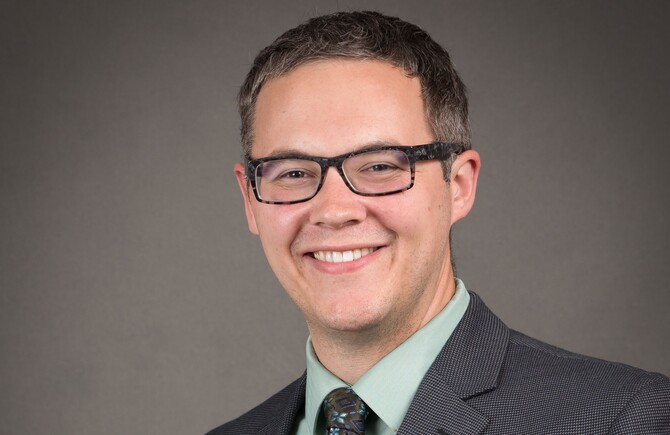Penn Researcher Earns Early Career Award for Work on Brain Stimulation
When John Medaglia joined the University of Pennsylvania a year ago as a postdoctoral fellow, he didn’t yet have a precise path. Now it’s a little clearer, thanks to a prestigious honor given out to just 16 young scientists across the country.
Medaglia earned the National Institutes of Health’s Early Independence Award, a five-year, $1.25 million grant presented to researchers at the beginnings of their careers. For Medaglia, it means the chance to continue work that combines a triad of interests represented by three pending University appointments in the departments of psychology, bioengineering and neurology. Using engineering principles and brain stimulation, Medaglia hopes to advance stroke victim recovery.
Getting to this point wasn’t a straight line for the scientist.
“I had a weird journey. I started out thinking I would be an engineer, then took a hard left turn to psychology,” he said. As an undergrad, Medaglia set his sights on becoming a full-time therapist, but academia called. Even so, his graduate training focused on the clinical aspects of recovering from traumatic brain injury.
“By night I was doing neuro-imaging on traumatically injured brains. By day I was working with people in real time doing clinical work,” Medaglia said. “Toward the end of that, I had a struggle between this clinical identity over here and the brain analyst identity over there.”
Academia won out when he landed a position at Penn, where he’s had a unique opportunity to work across these varied fields.
“I went to the edge of everything I’ve crashed into so far, science-wise, and then realized there’s nothing in between these edges,” he added.
Medaglia decided to see what happens when he examined that intersection, egged on by the support of mentors, specifically Penn’s Sharon Thompson-Schill, Psychology Department chair in the School of Arts & Sciences; Roy Hamilton, an assistant professor in the Department of Neurology in the Perelman School of Medicine; and Danielle Bassett, Skirkanich Assistant Professor of Innovation in the School of Engineering and Applied Science’s departments of Bioengineering and Electrical and Systems Engineering.
The Early Independence grant is one of four award types from the NIH for this kind of “high-risk, high-reward research.” Explicitly, it means less time doing postdoc work, more time doing independent research. Medaglia will begin his five years with experiments that map where brain signals flow using emerging engineering principles called network control theory. From there, he aims to help doctors individualize stroke victims’ recovery plans by looking at each person’s brain function post-stroke and figuring out the right areas of focus.
“By modulating how your brain is functioning at certain points in your recovery, can we promote better recovery or faster recovery or recovery after we thought you were done recovering 10 years ago? The answer to all those seems to be yes, but,” Medaglia said, “there are a lot of limitations.”
That’s where the engineering comes in.
“It’s not reinventing the field in any sense but saying, ‘We have all this information, but how do we connect the dots?’” he said. “Once we do, can we see things we couldn’t see before?”
For the native Pennsylvanian, those questions hold the key; unlocking them could mean a world of difference for stroke victims.








